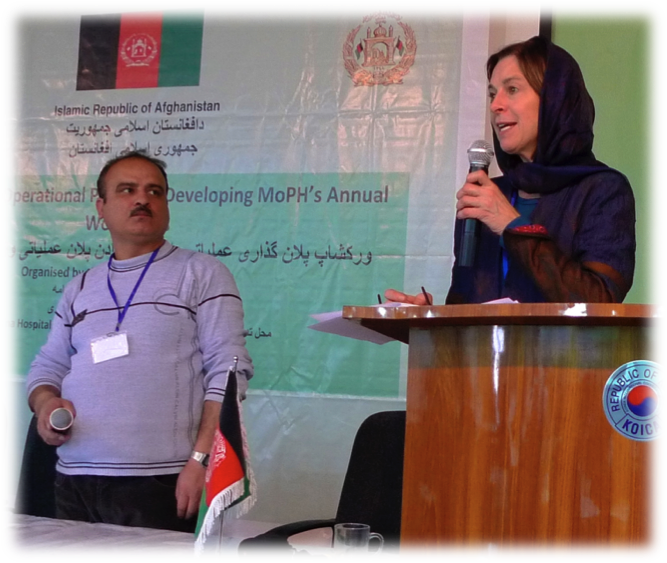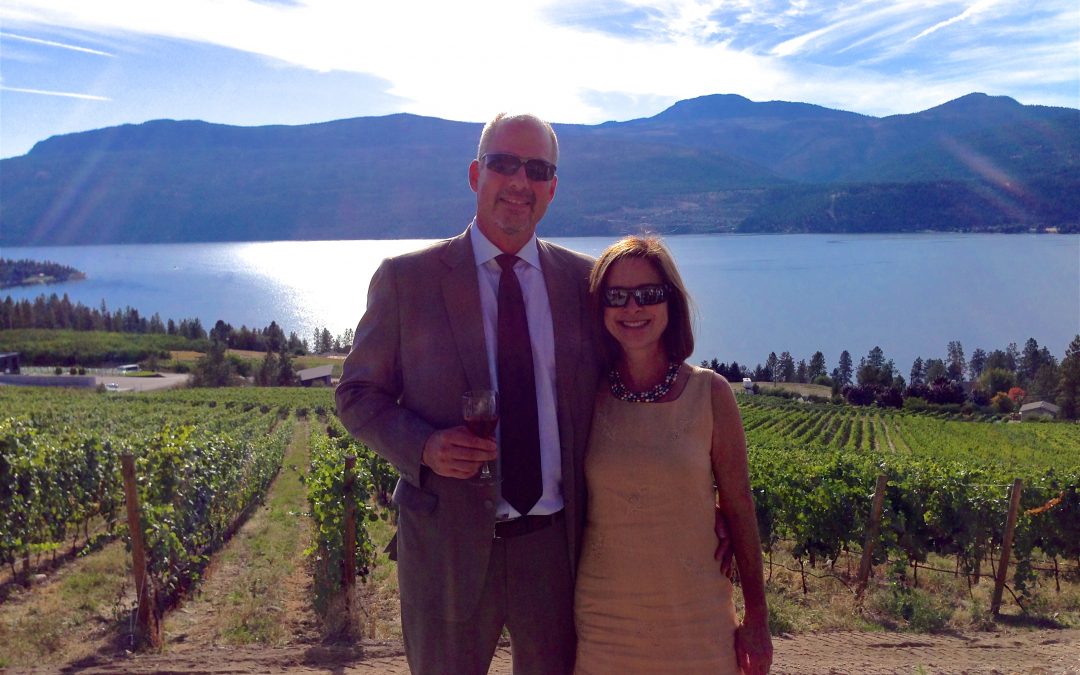
by pam | Nov 21, 2016 | Beliefs & Values, Body-centered coaching, Creative Living, Powerful practices
I just finished reading my friend and colleague Barb Edie’s inspiring new book Creating the “Impossible”. It reinforced my belief that my dreams are NOT too big, and I CAN accomplish them by following my heart, asking for what I want, and being open to opportunities and people who come my way.
What dream do you have? How do you want to make the world a better place? What skills and talents do you have to draw on to move toward your vision? Who can you partner with to support you to move toward your vision?
In August 2010, I felt like I wanted to make a bigger difference in the world. I had launched my coaching business 18 months before, and had a network of coaches in Canada and the US specialized in coaching people through a variety of life transitions; career, relationship, health … . Our clients were getting some good results, but we weren’t positively impacting enough people; things weren’t moving fast enough. My soul was telling me that there was something more, something bigger. I had been studying Body-Centred Coaching with Marlena Field and was engaged in the last teleseminar of the program. She asked for a volunteer to demo a body-centred decision-making process. I volunteered. Marlena gave the following instructions:
Find a line on the floor. Now think about what you want. Notice if any negative emotions (e.g. fear) or limiting beliefs (e.g. I can’t possibly do that!) come up for you. Imagine each of those emotions or beliefs as stones in a pack on your back. Then imagine each one of them falling to the ground. Notice how light and free you feel. Now envision what you want. Cross that line on the floor however you wish – leaping, running, walking, and while doing so say aloud what you want. … Pay attention to people and opportunities that present themselves in the days and weeks following.
I leapt across the line, a carpet in my office, and yelled “I want to PLAY BIG!” Within two weeks I received an email inviting me to “throw my hat into the ring” for one of 3 positions in the health sector in a new high level program the Canadian government had launched in Afghanistan. On receiving the email, I knew in my heart that this was my opportunity to PLAY BIG. I said “yes” to being interested, and within one month I had “won” the contract to be a Technical Advisor in Policy and Planning to the Ministry of Public Health (MoPH) in Afghanistan. Two weeks later I was on the ground in Kabul. I ended up living and working in Afghanistan for 13 months and helped the MoPH develop their first strategic plan, and built the capacity of internal teams to do strategic and operational planning using participatory processes. It was an amazing experience! … You’ll never guess what the “line on my office floor” was. It was an Afghan prayer mat I had been gifted while working in Pakistan a number of years before!
I invite you to try the process above and ask for what YOU want. Then notice, in the weeks following, what people and opportunities present themselves to support YOU to “create the (seemingly) impossible”.
In her new book, Barbara Edie shares stories from her own remarkable life, as well as those of a number of visionary change-makers from around the globe who are making the world a better place. Compelling, inspiring, with powerful lessons, and questions for contemplation woven throughout, Barbara takes us on an incredible journey showing us how that when we listen to and trust our inner wisdom, dream big, and follow our hearts, anything is possible! If you want to be inspired get your copy (print or ebook) of “Creating the Impossible: What It Takes to Bring Your Vision to Life” today.
I welcome your comments below. Feel free to share this with others you think may find it of interest.

by pam | Oct 25, 2016 | Beliefs & Values, Conscious Living, Creative Living, Proven strategies, Stress Management, Women in Business
What is conscious choice?
Sen defines it as “when you are making choices with the full understanding of reality, from a place of inner freedom, rather than making choices from a place of delusion/ignorance or fear-based motivations.”[1]
Brady views conscious choice as (making) “choices that are conscious, free from knee-jerk reactivity, and (being) mindful of the impact they have on (y)our own well-being, as well as the impact they have on others and the larger environment. “ [2]
What do our lives look and feel like when we don’t make conscious choices?
We make choices based on what we think someone in our position should make, or based on wanting to belong to a particular group, and thinking there is a particular way we need to speak and act to be accepted by that group.
We study and become; for example, a physician, because that’s what our parents want us to be; instead of following our heart and studying something we are passionate about.
We get into relationships based on the type of partner we’ve been socialized to choose, or to satisfy a need we have. For example, believing that we need to marry someone who will provide us with financial security above all else, or becoming a rescuer and getting involved with needy people to help them, rather than choosing a true partner who will support us to learn and grow in positive ways, and us them.
We respond to family members, friends or colleagues reactively based on previous conditioning or fears that we have. We jump to conclusions, become angry and lose control saying and doing things we later regret. This distances us from people and makes us feel alone and misunderstood.
Making unconscious choices can cause a lot of unhappiness, conflict, stress, disengagement, lack of fulfillment, and negatively impacts our relationships, careers and our health. When we don’t make conscious choices, we aren’t being true to ourselves.
So how can we learn to make more conscious choices? It’s a process and a journey that requires commitment and a desire to learn and grow. The first step is learning to become more self-aware.
Proven Strategies to Increase Self-Awareness:
- Spend time on your own walking in nature, swimming, kayaking… and notice what you notice. Is your mind constantly active? What do you think about? Notice how you feel while in nature and while being physically active. Journal about your thoughts and feelings.
- Become aware of your emotions. Start noticing how you react to certain people and situations, and get curious around why that is. Is it due to past experiences? Does that person remind you of someone in your past who treated you badly? Does that person’s behavior make you feel unsafe?
- Clarify your values (refer to http://creativelivingcommunity.com/do-you-live-in-alignment-with-your-core-values/), and live your life in alignment with them
- Work with a coach
- Participate in personal growth workshops and/or group coaching programs
- Study and practice mindfulness. A good place to start is doing mindfulness walking meditations. [3]
What happens when you become self-aware and get in touch with your core values, passions, and who you really are? You are able to make conscious choices; ones that are aligned with your values, needs and passions, and that lead to connection, good health, happiness, fulfillment, and inner calm; instead of conflict, disengagement, stress, compromised health, unhappiness and lack of fulfillment. Which would you rather have in your life?
I invite you to try some of the strategies listed above and notice how they impact your life and your decision-making. I’d love to hear your strategies for becoming more self-aware and how you make conscious decisions. Share your comments below and feel free to share this post with others.
[1] Sen, Conscious Choice – http://www.calmdownmind.com/conscious-choice/ – posted on November 12, 2012
[2] Brady, Reaction Management: How to Make Conscious Choices – http://www.chopra.com/articles/reaction-management-how-to-make-conscious-choices
[3] A tool from Easter psychology that I have found extremely useful for getting “out of my head” and into my body is Mindfulness Walking Meditation. Mindfulness practices focus on the senses and feeling sensations and emotions in our bodies. When we do a mindfulness walking meditation, we feel the ground beneath our feet, we feel the breeze against our face, we feel the cool air going from our nostrils down into our lungs. We smell the scent of salt or the aroma of lavender in the air and observe the scenery in front of us. We try to stay out of our minds and experience our senses. Rather than spend a walk in nature constantly thinking and processing all the things we have to do, instead we stay present and experience nature and all of its beautiful sights, smells, sounds and sensations.

by pam | May 17, 2016 | Beliefs & Values, Benefits of being in nature, Coping with Change, Creative Living, Proven strategies
Two months ago, I felt like my life was turned upside down. My partner, Alan, was headhunted and offered a position in another city. When he received the “hard” offer, they wanted him to start in 2 weeks! I’ve moved and gone through many changes in my life; however, this particular one that came “out of nowhere” really shook my foundations. I felt discombobulated for a couple of weeks. Alan and I had moved to the beautiful Okanagan Valley almost 8 years ago for lifestyle, and we thought we’d be here forever. Now, that might not be the case.
How many times have you envisioned that you were “settled”; that no other changes were going to happen in your life? I coach clients how to deal with life changes with “ease and grace”, and here I was going through one and experiencing a fair bit of turmoil!
So what was the silver lining in this change?
1) It made me reflect on what is most important to me in life. I realize and have known for some time that relationships and connection are most important. Being in nature and close to water also help ground me. I appreciate the beauty in nature.
2) It created an opportunity for me to go through my material possessions and decide which ones to keep, sell, discard or give away. After sorting through many of my clothes last weekend [and I have quite a collection ☺], as well as courses I’ve designed and reports I’ve written, I felt lighter and reconnected with my belief that “stuff” isn’t what is most important to me. Rather it is the people and special relationships in my life.
3) It opened me up to new adventures and possibilities.
What helped me regain my balance and get clear on what is most important?
1) Spending time in nature. Going for regular walks and taking the time to reflect and “be” rather than “do”.
2) Meditating daily and asking for guidance.
3) Sharing the news with family and close friends and realizing I will stay connected to them regardless of where I live.
4) Viewing the potential move as a new adventure; an opportunity to make new friends and be open to new possibilities.
5) Communicating openly with Alan and envisioning what is important to us in a place to live and during this time of transition. Sharing what we would like in our “new” life together.
How have you regained balance in your life when a change “caught you off guard”? Please share your thoughts and comments below. Feel free to share this post with others.

by pam | Mar 24, 2016 | Beliefs & Values, High Achieving Women, Proven strategies, Stress Management, Women in Business
Burnout and extreme stress are on the rise globally. The Japanese even have a word for what can result from extreme stress “karoshi” or death from overwork[1]. International cross-cultural studies[2] show that those in the helping professions (e.g. social workers, nurses, physicians, development professionals), and high achievers, are at higher risk for burnout than the general population. The curious thing about high or over-achievers is that we tend to work harder when we get closer and closer to burnout. It’s almost like we believe we are invincible!
I recall when I was close to burnout a few years ago, how I kept pushing and pushing and NOT listening to my body. I had pushed through fatigue to finish that one last thing for many years, and was healthy (or so I thought) with no noticeable side effects. Until late 2012, when all that changed. After 13 months in Afghanistan followed by 12 months working with an NGO on projects in 7 countries in Asia and Africa, I finally realized I was exhausted and made a decision to STOP and take a much-needed break.
Causes
In general, people are expected to work longer and harder to get ahead. I recall a client sharing when she was articling to be a lawyer that she stayed at her desk for several hours after she had completed all of her work by 4:30 pm because the organizational culture expected articling students to always stay late. I’ve consulted with organizations where people apologized for not checking email while on vacation. One VP shared that this was the first vacation she had taken in 10 years!
Many organizations provide their managers and supervisors with smart phones and do not set clear boundaries related to emails and texts. People feel “chained” to technology 24/7. They feel like they have little or no time for themselves or to spend with family and friends. This causes stress in relationships, and in particular in women, leading to feelings of guilt about not being a good mother, partner or friend.
Organizations tend to reward individuals rather than teams, which encourages competition rather than collaboration among their managers and staff and further aggravates the stress. In a world where information and the logical left brain is valued more highly than intuition and our creative right brain, we have learned NOT to listen to our bodies and to focus on “doing” rather than “being”. Working in an organization or position/profession that is not aligned with your core values can also lead to burnout or adrenal fatigue.
Burnout and Adrenal Fatigue
Dr. Sherrie Bourg Carter in her book High Octane Women states that: “burnout occurs when chronic stress and frustration lead to:
- Physical and emotional exhaustion
- Feelings of cynicism and detachment
- A sense of ineffectiveness and lack of accomplishment.” (p. 16)
Dr. James Wilson in his book Adrenal Fatigue The 21st Century Stress Syndrome notes that :
“adrenal fatigue occurs when the amount of stress [physical, psychological, emotional, infectious, environmental or a combination of these] overextends the capacity of the body (mediated by the adrenal [glands]) to compensate and recover from that stress or the combined stresses. Once this capacity to cope and recover is exceeded, some form of adrenal fatigue occurs. “ (p. 11)
In general, traditional medicine does not recognize adrenal fatigue. Naturopaths and alternative medicine practitioners do. When you look at the research related to adrenal fatigue and burnout the symptoms overlap.
Symptoms
Do you feel exhausted? Have you lost your passion? Do you feel like your life is all about work and there’s no time for fun? If so, you may be suffering from burnout or adrenal fatigue
Other symptoms include:
- Insomnia (difficulty sleeping, mind often racing)
- Feeling tired on awakening; even after sleeping 10 plus hours
- Afternoon energy crash followed by a burst of energy later in the evening
- Anxiety
- Irritability
- Loss of enjoyment
- More prone to colds or flu
- Apathy
- Loss of appetite
- Feeling cold when others aren’t
- Reduced libido
- Difficulty focusing
- Reduced productivity
A free online assessment for Adrenal Fatigue is available at http://www.adrenalfatigue.co.nz/dr-wilsons-adrenal-fatigue-questionnaire/
What to do about it
- Unplug from technology at least 90 minutes before you go to bed
- Start listening to your body. When you feel tired take a short nap (e.g. 15 to 30 minutes if you can) or go for a short walk (15 to 30 minutes)
- Sleep at least 8 hours a night and go to sleep before 11 pm
- Schedule blocks of time in your calendar for you (e.g. work out at the gym, lunch with a friend, concert with your partner)
- Do some type of physical activity daily
- Eat a healthy diet with a variety of unprocessed foods including fruits, vegetables, legumes, whole grains (plant-based foods are best); poultry and fish
- Limit your alcohol and caffeine intake
- Begin yoga and if you enjoy it try to do it 3 times a week
- Meditate daily for 10 minutes or more
- Nurture yourself daily (e.g. have a bubble math, massage, listen to relaxing music, do something you love)
- Spend time in nature (aim for 3 times a week for 30 minutes each time)
- Make a list of key activities you need/want to accomplish each day. At the end of the day go through the list and check off those you’re completed at the same time celebrating yourself and feeling it in your body (for examples of celebration see http://creativelivingcommunity.com/the-power-of-celebration-2/ )
- Focus on one thing at a time
- Make a clear differentiation between work and home time. For example, before leaving work say to yourself, I am now leaving work behind, or pick a point on your drive or walk home where you make a conscious choice to release work and step into “your” time.
- If you are no longer excited about your work, do a values-clarification exercise, and get clear on your core values[3] and what “lights you up”. Perhaps hire a life coach to work with you to assist with this and support you to integrate new behaviors into your life
- If symptoms persist and if you are continually fatigued even though you sleep 8 plus hours a night, and have lost your zest for life, go to a recommended naturopath or physician who is open to complementary therapies.
What strategies have you found helpful to reduce stress in your life? What new strategy do you plan to integrate into your life starting tomorrow? I’d love to hear your comments below. Feel free to share this post with a friend, colleague or family member.
[1] http://rt.com/news/221467-japan-workers-law-vacation/
[2] http://www.theguardian.com/women-in-leadership/2016/jan/21/spot-the-signs-of-burnout-before-it-hits-you?CMP=ema-1694&CMP=
[3] http://creativelivingcommunity.com/do-you-live-in-alignment-with-your-core-values/

by pam | Oct 8, 2015 | Beliefs & Values, Conscious Living, Creative Living, High Achieving Women

Source: “deposit photos” – http://depositphotos.com/8148540/stock-photo-backpacker.html
When I first launched my coaching practice that initially focused on supporting people through various life transitions, I attracted a number of women with various physical ailments from lack of sensation to pain in different parts of their bodies. When I took them through an exercise to help them to clarify their top five core values, an interesting thing happened; for almost all of them a “light bulb” went on. They realized they were in a job or a relationship that was severely out of alignment with one or most of their top five core values.
So what are values and why are they important?
Values are the beliefs and principles that are at the core of our being. We learn them from our parents, from people who have had a significant impact on our lives, and from our life experiences. They “determine” our perceptions of and reactions to people, situations and events in our lives.
Personal values
Personal values might include achievement, commitment, contribution, connection, integrity, or family. If you are a High Achieving Woman, it is important that you set goals and achieve them on a regular basis in order for you to feel good about yourself. If “contribution” is one of your core values, feeling that you are contributing and making a difference in the world positively affects your well-being.
Have you ever met someone and after having a short conversation with them felt uncomfortable? When someone steps on or pushes up against one of your core values, you may feel uncomfortable, or angry, or protective of another. For example, if “social justice” is important to you, when you see someone behaving disrespectfully to an individual from another cultural group, something fires inside you and you naturally want to stand up for the individual. Getting clear on your personal values helps you better understand yourself and your reactions to others.
Knowing your top five core values also assists with your life choices. If you choose a business partner who is all about competition and you value collaboration, over time this will bother you. If you value connection and are not able to openly communicate about feelings with a friend or partner, over time the relationship won’t grow stronger as you will feel something is missing or that you need more.
In summary, identifying your top five core values is critical to better understanding yourself and your reactions to certain individuals and situations. Using your core values to assist you in choosing a partner, career or workplace is essential to creating a life of health, happiness, true fulfillment and inner peace.[1]
How have your core values influenced you and your choices? I welcome your comments below.
[1] This is an excerpt from my book Learning to Dance with life: A Guide for High Achieving Women available here: www.amazon.com/dp/B0145ZGDO2

by pam | Aug 11, 2015 | Beliefs & Values, Entrepreneurship, High Achieving Women

While recently visiting a friend who was recovering from surgery, she said something to me that really made me sit up and take notice. After opening the card and gift I brought her she said, “Your presence is enough.” When I reflect on my life and my driven nature, I realize that I’ve lived much of my life as if my presence is NOT enough; from a place of feeling like I need to perform and achieve in order to be loved and to BE enough. Do you relate?
I invite you take a few moments to reflect on your life. Have you been living it as if “Your presence is enough?” Think about what your life would look and feel like if you truly believed that your presence was enough? … You might feel free, confident, unconditionally loved, in the flow, like you didn’t have to constantly strive and give 110% when 100% was sufficient. I encourage you to “try on” the vision and feeling of living like “Your presence is enough” and notice any differences. Is life easier and more fun?
I welcome your comments below. Feel free to share this post with others.






